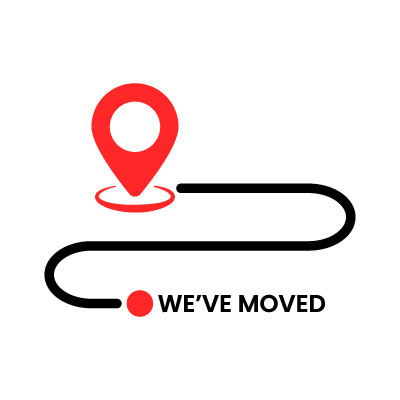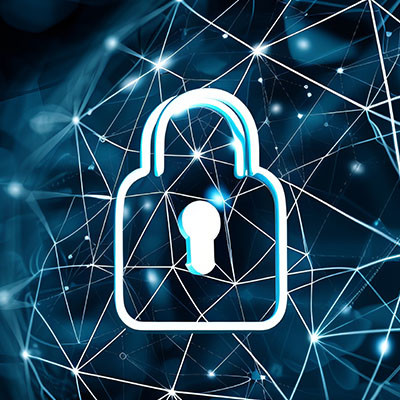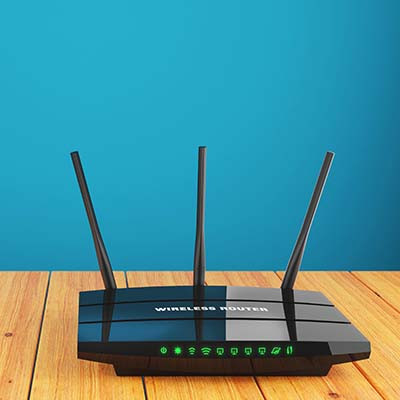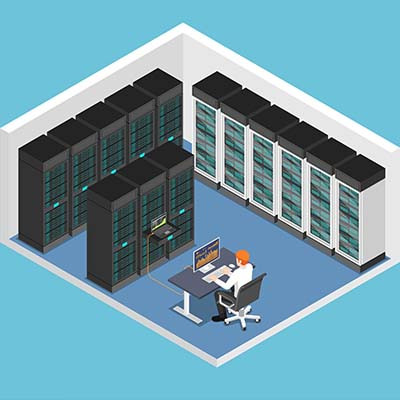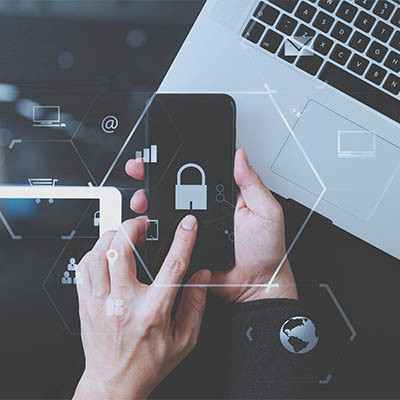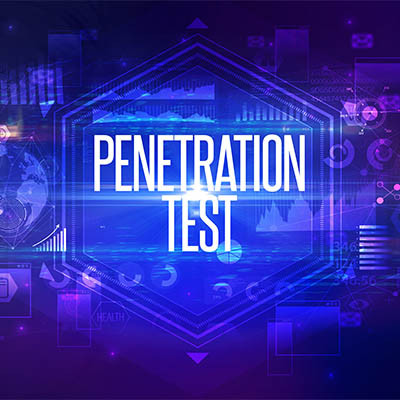k_Street Consulting, LLC Blog
Whether it's a personal challenge or a necessity, keeping productivity high is good for an individual’s career growth and overall self-worth. Unfortunately, staying on top of your game can be difficult. We thought we would give you three things to consider that will work to keep your productivity levels high.
Businesses of every size need to prioritize their security. This fact has not changed and will not change anytime soon. What has changed, however, are the recommended ways to approach this security.
Today, we wanted to review the history of today’s predominant cybersecurity advice and explore how the zero-trust security model applies.
Collaboration is as important as ever, if not more so, to businesses of any size… and with so much work today being done digitally, this collaboration needs to be reliable. Add in the fact that so many people work remotely as often as they do, and it should be clear that all businesses need a means of securely collaborating as part of their successful operations.
Your business requires you to make certain compromises. Still, when it comes to building a network of vendors that can help you realize your goals, you have to take some time and carefully select the people you want to have long-lasting relationships with because constantly changing vendors can cause plenty of problems for you. In this month’s newsletter, we discuss how to get the most out of your vendor relationships.
Would you feel safe staying at a hotel that, instead of unique locks, each door used the same key as all of the others? Probably not—because if someone got in, they could take whatever they wanted. That’s similar to how old-school cybersecurity worked. Once someone got into a company’s network, they could access almost everything, making it easy for hackers to steal information. But today, many businesses use a better security framework called zero-trust security. In today’s blog, we discuss what zero-trust security is and why it’s safer.
It can be difficult staying productive with all the things that happen day-in and day-out around your business. When your team is productive, it helps you stay focused and organized, and it can make a big difference in how successful you are. This week we break down just how keeping productivity levels high can make or break a business.
If there’s one thing that helps businesses establish consistent policies and strategy, it’s a good framework. You can use a framework for anything, including network security. Today, we want to walk you through the cybersecurity protection standards as they are outlined by the National Institute of Standards and Technology so you can better protect your business.
Technology is central to most businesses, which means that security is, by proxy, central to them as well. With cyberattacks on the rise, it’s more important than ever for you and your employees to be on the same page regarding cybersecurity. Today, we are looking at four ways you can ensure sound cybersecurity practices that even the most belligerent employees can follow… with the right support in place.
Cloud computing has become a common tool, especially Software-as-a-Service (SaaS). Hosted software provides robust options that make sense to all companies, including anytime-anywhere availability, scalability, and provider management of the underlying hardware. In today’s blog, we want to discuss a couple of tips people can use when working with cloud computing.
Every business has to choose how they network their office. Most businesses choose the ease and convenience of wireless networking to allow their employees the freedom to use their mobile devices, IoT tools, and other devices. This month, we look at some of the best tips for setting up your organization’s Wi-Fi network.
Network security is a major issue for any business that relies on password-protected systems—and who doesn’t? With so much at stake, it’s important that every user uses passwords that are not only complex and secure but also easy to remember. This month, we will discuss how the passphrase is the answer to keeping your password-protected accounts secure.
Collaboration is at the heart of any effective business. Most organizations today are trying to make the most of their limited resources, and one of the ways to do this is with a solid collaboration strategy. Here’s how you can do the same to avoid siloing tasks and squandering your workforce’s potential.
Technology allows businesses to leverage high-impact practices, but only if that technology works the way it’s supposed to. Even simple issues with network connectivity problems, outdated technology, and cybersecurity can impact operations. The key to a successful technology deployment is understanding where potential disruptions could occur and taking measures to proactively address them ahead of time.
You should always use strong passwords for each and every account. Cybercriminals don’t need to put much effort into cracking a password these days—it only takes a little software and standard computer hardware to crack millions of passwords in just a second or two.
The more complex and random a password is, the more secure it is.
But coming up with (and memorizing) complex passwords is really difficult. This trick should make it a whole lot easier.
While your business might last into the near future, your IT is more challenging to upkeep and preserve over time. You’ll have to consider reworking and restructuring your infrastructure to ensure that it stands the test of time. Let’s review some warning signs that it might be time to do just that.
Productivity is the measure of which an employee and a business is judged by, and for that reason, when productivity starts to lapse at an individual or organizational level it needs to be addressed immediately. In today’s blog, we’ll go through some of the problems that an organization can see when productivity drops.
Adversity is an inevitable part of doing business. Every administrator, manager, and employee will face challenges at some point. Overcoming these obstacles is crucial for maintaining efficient operations and fostering a resilient work environment. Here are some effective strategies to help you navigate adversity in business.
Automation has been a hot-button issue in the business world over the past few years. Many business owners have tried to find ways to automate some of their operations, while workers wonder if this strategy develops as people in the know suggest it will, they could be out of a job. We think that automation is actually a massive benefit for organizations and workers alike. This month we will go through a few tools that small businesses can easily leverage to use automation to their advantage by taking a look at some of the tools that companies depend on.
Every business is looking to technology to enhance their ability to support their operations and provide a better customer experience. Maximizing the value you get from your technology involves a combination of optimizing usage, staying updated, and using the tools and resources you’ve chosen efficiently. Here are some strategies:
Today’s businesses have more technology involved in their processes than ever, making it essential to have access to the support that will keep them in operation. Nowadays, that kind of support is best obtained through a relationship with a managed service provider.
Now, I feel it is appropriate to acknowledge that all this is coming from a managed service provider… but that’s just because we feel strongly enough about the benefits of managed services to offer them over the traditional approach to business IT support and services.
If you want your organization to be efficient, you must increase productivity. However, this is often easier said than done, as plenty of obstacles, communication challenges, and resource allocation issues can stymie even the most well-thought-out plans. Let’s look at how you can improve productivity for your business by considering these common issues.
Technology is a major pain point for just about all businesses, whether you’re a small mom-and-pop store or a medium-sized (and quickly growing) name in your community. You’ll always have the technology to upkeep, from computers and servers to software solutions or point-of-sale registers. This month, we want to discuss how managed IT solutions can help you maximize your resources by offering a simple, easy, and cost-effective alternative to hiring multiple in-house technicians.
Phishing is a pervasive threat nowadays, with businesses of any size or industry serving as prime targets. Understanding phishing and implementing effective prevention strategies is crucial for your entire team.
Let's explore how to reduce the effectiveness of phishing schemes against your business—in other words, how to prevent phishing from having an impact.
While the word “audit” can easily be a scary thought for businesses, there are certain cases where an audit serves an organization’s direct benefit. Take, for instance, the ones that occur internally to identify and correct security issues and vulnerabilities. These audits are not only a positive endeavor for businesses; they’re extremely important to carry out.
Let’s talk about why this is and review a few standard practices you should prioritize as you go about this process.
How can you know when your organization should upgrade its technology infrastructure? The truth is that it’s not always immediately obvious when you should do so, as there are countless factors in play to consider at any given time. Today, we want to help your business determine when to bite the bullet and upgrade your technology.
When it comes to running a successful business, customer confidence is everything. It can make or break your business’ reputation. If you’re too reckless with your customers, why would anyone else be willing to sign on with you? Thankfully, there are plenty of ways you can build customer confidence, and technology plays a pivotal role in many of them. Today, we want to explore how you can build customer confidence through the use of business technology solutions.
One of the biggest signs that your business is doing well is that it is growing. When it starts to grow, you might notice that your office suddenly feels a little cramped. While moving an office can be stressful, it is often necessary to ensure that your company can continue to flourish. From an IT perspective, it can be even more challenging.
It’s not hyperbole to suggest that many people in business these days prefer digital communication over the alternative. Smartphones have evolved over time and adapted to this need. That said, using a smartphone to communicate does still have its fair share of unwritten rules to follow. Let’s discuss some of the dos and don’ts of smartphones.
Cybersecurity is crucial for everyone to focus on, both in the professional environment and in their personal lives. That’s why I wanted to put together a list of cybersecurity practices you should encourage your team to follow when they aren’t in the office or working remotely, when their time is theirs.
Network security is complicated, and as such, you need to have considerable knowledge of it to ensure that your business is as secure as possible against the plethora of threats out there. Thankfully, you don’t have to do it alone. We want to give you some insight into the dos and don’ts of network security.
Opening a new location is an exciting event for any business, but it's not without a litany of difficult decisions to make. One thing is certain, challenges always emerge. One thing you can do is plan your technology needs strategically to avoid headaches in that arena. Today, we take a look at how to best get your new location outfitted with the technology it needs to succeed.
Business Intelligence (BI) is a platform that uses the data that your business creates to help you make advanced business decisions. Starting to use data for business intelligence involves several key steps to effectively gather the data you want to sort through and successfully analyze it in a way that can allow you to understand your business better.
Phishing attacks are the most common attack vector used by hackers, and while it helps to know what a phishing attack looks like, it’s also good to know what they don’t look like. The latest example of a phishing attack takes this to an extreme, utilizing blank messages to confuse recipients in a creative take on phishing attacks.
Wouldn’t it be great if your business didn’t have to worry about technology problems? Well, with the right amount of attention and care invested, your business can minimize technology issues and optimize your infrastructure for proactive technology management rather than reactive. Let’s go over some of the most important practices.
If you have a to-do list a mile long, then you’ll need to develop a system to place priority on what truly matters and what could be put off until a bit later. Thankfully, you don’t have to develop a system from scratch, as one of the more interesting methods for tackling your to-do list has already been developed and inspired by a 1950s speech: the Eisenhower Matrix.
As your business grows and shifts, managing your technology can become increasingly complicated. It can get to the point where properly taking care of your IT and supporting your users is a full time job. If you are just calling a computer person to come and fix problems when you bump into them, then you might have potential consequences to deal with later that could cost your organization a lot of time and money.
Productivity will always be the primary goal for businesses, right alongside profits, although one thing does in fact lead to another in this case. To ensure your company runs efficiently, you need to understand just how productivity works and its relationship with what you put into your business. We’ll be using the next couple of weeks to take a closer look at the relationship between your business and its productivity.
First, let’s look at what productivity is, in its simplest and purest form.
With more people depending on technology, it stands to reason that there are more scams out there than ever before. The individuals (and groups) responsible will look for and exploit any vulnerability to attack your employees in order to get at your business’ critical data. Let’s take a look at a couple of tips that you can use to keep your passwords strong and your password-protected accounts secure.
More businesses than ever before are making adjustments toward a more digital business involving more complex and sophisticated technology, making more reliable and efficient IT of paramount importance. There are benefits to outsourcing your IT resources, but there are also times when you might consider hosting your infrastructure in-house. Let’s go over the benefits and how you can benefit from a mixture of in-house and outsourced IT.
Cybersecurity is one part of your business’ computing that you must prioritize, as the fallout of a data breach could, in many cases, be enough to shutter your business for good. You want to be seen as a company that takes data security seriously, and to this end, you have likely implemented countless security features and measures to protect your organization’s resources and data. However, this all comes at a cost, and it’s not the one you might expect: your employees.
In today's digital world, SMBs need to establish a comprehensive cybersecurity strategy to protect themselves from a range of potential threats. Whether it's a small business with a handful of employees or a large corporation with thousands of workers, every organization is vulnerable to cyberattacks. That’s worth stressing because so many business owners think they are immune simply because of the size of their organization.
In the technology news sector, you’ve probably noticed a trend where Patch Tuesday makes headlines at least once a month. This is generally the day when Microsoft issues patches and security updates for its many different technologies, and it’s important for your IT department to know when Patch Tuesday falls each month.
There is an inherent value associated with outsourcing the management of your technology to a managed service provider, or MSP. With your team taking a more hands-off approach to technology, they can instead focus on being more productive. If you’re still on the fence about this approach to technology and business, then we have some questions you should consider asking if you are thinking about learning more about MSPs and what they do.
Nowadays, file sharing is so ubiquitous that most people in the office likely take it for granted. However, this is not a luxury that you have, as you need to ensure the file sharing that takes part is sufficiently secure—otherwise, you could find yourself in a tight spot. That’s why we want to devote this week’s tip to a few practical steps to making sure your files get where they’re going safely.
With so many workers constantly connected to screens and other technology, it is a good idea to disconnect every so often by taking a vacation somewhere. However, it’s not always this easy, especially for a business owner who is still minimally connected to the office even while technically on vacation. We’ve got a couple of tips for how you can make the most of your technology while on your vacation without putting your company at risk in the process.
How many devices or points of access do you have for your business’ data infrastructure? Chances are it’s more than you think, at least at first glance. If you count up all the mobile devices, server units, workstations, laptops, and so on that have access to your network, you might suddenly realize how important it is to secure all of these endpoints, as any unsecured device could be a path forward for hackers.
No business can be successful without collaboration. As such, businesses invest heavily in tools which facilitate effective collaboration for their employees. Let’s take a look at some of the variables that can contribute to an effective collaboration strategy, as well as how you can promote collaboration in the workplace.
In business, you need to be ready for anything, including potential disaster scenarios. Therefore, it stands to reason that you have a solid disaster recovery plan in place to help you address them should the need arise. We’ve outlined three disaster recovery best practices you should consider for your business continuity strategy, as well as some tips to help you implement them seamlessly into your own operations.
It can be difficult to stay focused in the workplace, especially with a litany of distractions at our fingertips at just about any point in the workday. What are some strategies you can use to keep your distractions to a minimum? We’ve outlined three great tips you can utilize to stay focused on the tasks at hand and be more productive with your time in the office.
During the first half of the Super Bowl last month, cryptocurrency exchange company Coinbase bought a minute of ad space to broadcast an ad that was just a QR code on the screen, meandering diagonally around the screen like the famous Windows screensaver. Millions of people took out their smartphones and scanned the code and now cybersecurity professionals are publicly decrying the tactic.
When we tell you that it’s a best practice to implement complex passwords for your business, do you know what exactly a complex password is? The truth of the matter is that secure passwords are a little confusing, and the standards continue to shift back and forth. Let’s examine some of the industry-standard best practices for implementing secure passwords and how your organization can go about doing so.
Protecting your organization’s data is a major focus of businesses these days, especially as threats grow more powerful and they better learn to penetrate the countless safeguards put into place. Let’s go over how encryption can help you cover all your bases—especially if hackers do manage to get through your security precautions.
If you are traveling this holiday season to bridge the gaps created during the COVID-19 pandemic, then you’ll want to take specific precautions about your technology. Here are some of the best ways you can keep your technology secure while you travel from point A to point B, as well as how we can help you do so!
Have you ever wondered how it is that people can build up bad habits over time, yet break them and establish better ones? Have you also noticed how difficult it can be to break habits that have been ingrained into the very fibers of our being over an extended period of time? Believe it or not, people can change, and the science behind it—neuroplasticity—can provide some valuable insights into how to make it happen.
Large files like videos aren’t exactly the ideal attachments for something like an email. There are also cases where you have to send multiple files, some of which may be large, attached to an email, but when the files are too large, this just won’t work. Thankfully, there are some ways around this, one of which is to compress files into a .zip file with a tool found in Windows 10.
With remote work still widely in place, the idea of lost or stolen devices has many companies terrified. Due to this security issue, you must consider what you might do should someone lose track of one of your company’s devices. Here are four ways that you can take preventative measures to ensure that lost or stolen devices don’t become a major security risk for your business.
Businesses are always trying to be as productive as possible, but the truth of the matter is that productivity is not a constant state of getting things done. It is perfectly natural to have ups and downs throughout the week that ultimately contribute to any progress made on tasks. The question then becomes one of how can you make progress toward goals for the workday. Here are four tips that might help you get more done throughout your day-to-day duties.
Access control can be a touchy subject for some employees, especially for those who might feel they can do their jobs more effectively if they were to be given access to certain files or sensitive information. That said, in the interest of network security and data protection, it is your responsibility to consider who amongst your staff has access to certain information and why.
What does your email inbox look like? Do you keep it clean for the most part, or do you let it get out of control because of how many email lists you find yourself on? If you find that you have a lot of trouble with managing your email inbox, well, read on. You’ll find some tips for how you can effectively manage and potentially even clean up your inbox!
When you started your business, you had a specific goal in mind. You wanted to prove something, to create something worth sharing with the world. We all have goals and aspirations, but it’s not always clear what the best path toward those goals is. Using a simple framework, you can maximize your odds of success and set great goals that you are much more likely to achieve long-term.
Cybersecurity is one aspect of running a business that absolutely cannot be underestimated in its importance. It doesn't matter if you’re a huge enterprise or a small business; if you don’t take cybersecurity seriously, there is a very real possibility that your organization could be threatened in the near future. The easiest way to ensure your business’ continuity is to develop an internal culture of cybersecurity, and it starts from the top-down with you, the boss.
Your business’ network is so important that if something were to infiltrate it that doesn’t belong there, it could wreak havoc on your whole company. One way that businesses can get their cybersecurity to a reliable place is through what is called penetration testing. This month, we thought we would briefly describe what exactly penetration testing is and how it can help your business.
It can be said that most of 2020 and the first couple of months of 2021 have been difficult for most people. Not billionaires, of course, but most other people have found the past year difficult on some level. That’s why it isn’t surprising to hear people talk about workplace burnout. Today, we’ll define burnout and what is being said about it.
Today’s business is always searching for a leg up, and this often means doing what it can to improve their operational efficiency. Companies can approach this in several ways. They can try to cut out redundancies, they can invest in training, or for many businesses, it means leveraging innovative new technological tools that are designed specifically for this purpose.
In the course of doing business everyone has their own specific responsibilities. One overarching responsibility that all employees need to have today is awareness. The health of a business depends on it. A staff’s failure to properly shoulder their load of security can have an immensely negative result for both the employee and the company. Today, we’re going to explain that when your organization gets breached by hackers, that fault is largely yours.
Novelty holidays have been all the rage for the past couple years. The thing is that if you are going to celebrate World Kimchi Day on November 22 or its sister holiday, World Cabbage Day on February 17, you either really like cabbage, or you really like holidays. With so many people using technology as a major part of their life and business, it’s no surprise that it is well represented on the holiday calendar. You have a few we’ve already missed: National Technology Day on January 6, Data Privacy Day on January 28, and National Clean Out Your Computer Day on February 8, but there are three important IT “holidays” this month. Let’s take a look at them now.
A business that has workers that are above average at maintaining productivity is typically a successful business. There are an endless number of suggestions on how to be and remain productive, and how to sustain that productivity. One thing that isn’t typically mentioned in all of that self-help advice is the role that patience plays in productivity. This month we thought we would do just that.
Considering that 2020 was… less than great for many businesses, it should come as no surprise that there will likely be difficulties that carry on for some time into 2021. Naturally, these difficulties will require some new ideas and fresh thinking to properly resolve, as well as an openness to adopting innovative technologies. Let’s look ahead to some of the IT challenges we anticipate that 2021 will hold for businesses.
Businesses of all sizes have been able to successfully overcome operational challenges by rethinking and adapting the technology they utilize. Let’s consider a huge example and look at what The Lego Group (as in the building blocks) has done to address some of their technological challenges with improved solutions—as well as how your business can do the same.
Many small business owners will temper their investments into IT security because they are of the notion that because their businesses are so small, they can’t be affected by hackers. We get it: prioritizing IT security is more expensive than you like and that money can justifiably be used elsewhere for more gain. The problem is that small businesses can and do get targeted by hackers. In fact, over 25 percent of all data breaches happen to small businesses. In today’s cyberthreat climate, your business can’t rely on luck. Let’s take a look at what you can invest in to protect your network and infrastructure.
Employee monitoring—the practice of keeping an eye on your employees and their computer activity during work hours—isn’t exactly a new practice. However, with remote work suddenly seeing a huge boost in popularity, many businesses have sought to confirm that their workers are spending their work time as productively as possible. If you do choose to go this route, however, it is important to be aware of the lines that you cannot cross.
Email is important, but it seems to steal so much of your valuable time, doesn’t it?
Conquering your never-ending inbox can seem like a feat all in itself—let alone having it done before lunchtime. There’s an easier way, and when done properly, you’ll be able to spend less time sifting through your email and more time on the more important stuff.
Let’s face it, it is nearly impossible for the modern business to stay ahead of every cyberthreat. It is just too much to proactively ward against. Today’s best practices will try to keep your network from being breached and your data from being stolen, but they may just allow you to understand how your network was breached and how your data was stolen. Unfortunately, cybersecurity is not foolproof, but let’s look at a few strategies you can use to improve your chances of holding onto your data and keeping unwanted actors out of your network.
As the pandemic enters its third quarter, many places have the spread of the COVID-19 virus under control and are starting to open up offices and other workplaces. Ultimately, it is the business owners’ and managers’ decision whether or not to demand attendance in an office, as most jobs completed in one can be effectively completed from home. For businesses that are opening their office and inviting their employees back, technology is still going to play a significant role. Let’s take a look at what IT is going to be important for people returning to the office after all this time.
Many businesses need their employees to do the same thing day-in and day-out. With that type of repetitiveness, situations pop up where some crucial stuff is overlooked. Employees that are distracted with their own productivity are susceptible to making mistakes that could have dire consequences for your business. This month we thought we would give you a few pointers on how to communicate the importance of vigilance to your dedicated employees.
Every business owner wants to protect their data. Even if they don’t pour money into doing so, they typically still understand the importance of it. That’s why three-out-of-every-four businesses perform a backup at least once per week. It’s still good to be reminded how to make sure your backup can work for you. Let’s go over a few basic considerations to make if you want a data backup that you can trust.
With some motivation from the ongoing COVID-19 pandemic, many businesses are adjusting their approach to cybersecurity. Typically, businesses would take a more measured approach in their day-to-day security improvements, while swiftly acting if there was any kind of clear and present danger. While this proved effective, the current situation has now shifted priorities over to maintaining resilience. Let’s examine some of these shifts, and how an advantage can be gained through a consistent cybersecurity strategy.



































